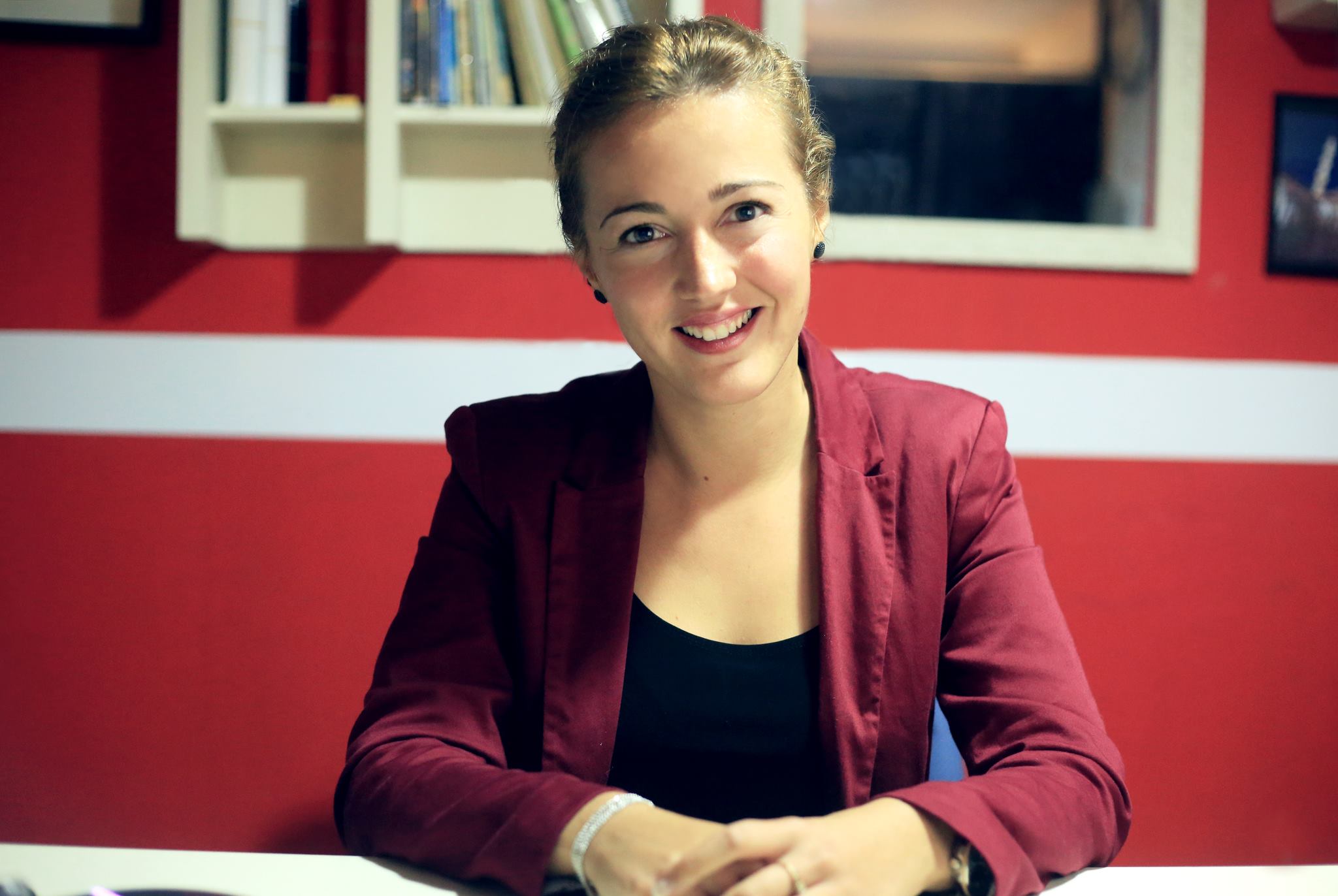
For half a decade, Emira Ajeti has been leading the charge in bridging the diaspora engagement gap through her various roles in the private and public sector. She strongly believes that diaspora should be at the front and center of government portfolios, and that there is a strong need for systematic engagement with diasporas to ensure that a transparent and mutually respectful long-term relationship with them is built by nurturing credibility and trust.
She has done a lot of work globally, most especially in Southeastern Europe and several countries in Africa and shares her interesting journey with Diaspora Digital News.
“I have a feeling I have known of the term ‘diaspora’ ever since I was a little girl,” she says. “In Kosovo and Bosnia and Herzegovina, both my countries of origin located in Southeastern Europe, people have always been proud of their diasporas because their respective diasporas had stepped up in their greatest times of need. To be frank, I remember being a bit jealous not having had any close family members abroad while growing up, because those who did had a support system in place in challenging times.
Later, I was part of diaspora myself, during my bachelor studies in Europe, and then again in the US (Boston) during my MBA and my professional development there. Moreover, I have met and networked with various diasporas all my life, and I have always been comfortable communicating with diverse groups of unique backgrounds. A friend of mine once told me that I thrive in diverse communities, and I think I have proven her right.”
Diaspora Affairs Role
Speaking about her roles in spearheading diaspora engagement and expertise, Emira says “I have worked extensively to connect businesses in Kosovo with new markets in Europe and the US through diaspora members, and have as a result managed to help create lasting and impactful linkages, as well as I have done a lot of work for Governments of several countries in Africa and Europe focusing on diaspora practices, leading discourse, engagement, developing their national diaspora policies and undertaking the mapping and profiling of their respective diasporas.
I have collaborated with global institutions such as the International Organisation of Migration (IOM) and various diaspora networks in relation to different business opportunities. I also serve on IOM’s Advisory Board of iDiaspora, a global engagement and knowledge exchange hub for transnational communities.
I have learned early on that policies and strategies should not be rigid, and that private sector inclusion in diaspora policy development is crucial, which is why I tend to explore specific diaspora sector policies and development strategies.
Moreover, I always advocate that migrants and diasporas are key stakeholders to any countries’ development, and that the future lies in supporting efforts to engage them and creating spaces for interaction and dialogue with diaspora. Hence, the role of any organization’s leading diaspora engagement is to ensure that diaspora, as a whole, feels represented, whereas providing welfare services to vulnerable diaspora is just as crucial as engaging successful diaspora in order to build a sense of a community, tackle the issues of discrimination and xenophobia et cetera.
While for governments, it is the economy that they want to revive with the help of diaspora and that rightfully so, diaspora ought to also be noted for the role it can play at all levels, including to spread messages and narratives about the home country, and influence what people think of home countries by helping the national image and contributing to country’s nation branding, as well as bringing innovation back home and helping change the mindset.”
How long have you been doing this?
“I would say for the past 5 years. Since my background was basically from the private sector, I was mostly engaged in Business Development. That said, I have over 13 years of experience working with private sector development in various donor funded projects, including IOM, USAID, World Bank, UNDP and so on. After completing my MBA, I started working on Business Development opportunities, export promotion and trade; and this is how I initially got into diaspora work. There are lot of countries, especially the smaller ones whose diaspora can have a huge impact to help them develop.
In my case for example, when I first got involved with diaspora affairs, I worked proactively with diasporas from the Balkans to link them with business owners in their countries of origin aiming to enter foreign markets in Europe and the US. I have helped the private sector unleash great potential for diasporas to become agents and distributors for exporting businesses in their countries of origin through market linkages (including inward and outward sales missions) and by providing technical assistance for production processes of manufacturers. Moreover, I was able to connect diaspora professionals that had shown interest to provide transfer of their knowledge, specific skills, technologies and know-how to business developers in their countries of origin, through on-the-job-coaching and professional advice, peer-to-peer exchange covering technical and management issues, and apprenticeships at diaspora businesses. This created a win-win situation through business opportunities, thereby increasing market ventures. And so, that is how it started and I have since graduated into policy development and proposals for diaspora investments.”
Location of work
“I am in Boston at the moment, but I will be travelling back to Europe soon.”
Leisure and Family time
“My family and my group of friends are very supportive whenever I travel. My friends are located all around the globe, so occasional meet ups with them when work and leisure permits helps with keeping the ties strong. My husband and I also often travel together for his or my work, so we make it very manageable. We love traveling and getting to know the local people and cultures at every opportunity we get. We also love nature and will go to any length to discover a waterfall in proximity.
A month ago, we had our first baby and we want her to see the world at every opportunity she gets. I was working just before I had her so it’s been a good use of time. She’s a healthy baby and already causing some trouble, but she always enjoys the strolls outside – and that’s a good sign. Next, we shall try a plane ride.”
Interview by: Theresa R. Fianko
Additional Information by: Emira Ajeti
Photo Credit: Emira Ajeti
Share this:
RELATED STORIES



